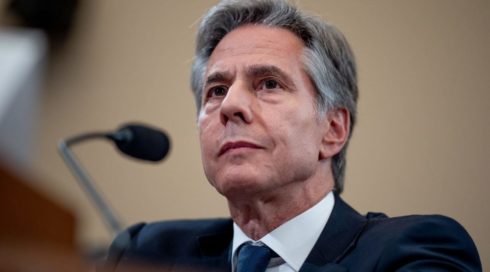US Secretary of State Antony Blinken has firmly denied any US involvement in the recent assassination of Hamas political leader Ismail Haniyeh. In an interview with Channel News Asia, Blinken stated, “This is something we were not aware of or involved in.” He further emphasized the difficulty of predicting the repercussions of Haniyeh’s death, advising caution against speculation. Blinken’s comments come amid growing tensions in the Middle East following the high-profile killing.
Haniyeh was killed in Tehran while attending the swearing-in ceremony of Iran’s new President Masoud Pezeshkian. His death has been condemned by various leaders across the region, who fear that it could lead to further violence and instability. The incident has particularly strained relations between Iran and Israel, with both nations trading accusations and threats of retaliation.
Regional Reactions and Rising Tensions
The assassination has triggered a wave of condemnation and promises of revenge from regional powers. Hamas has accused Israel of carrying out a “treacherous Zionist raid” to eliminate Haniyeh. In response, Iran’s Supreme Leader Ayatollah Ali Khamenei vowed “harsh punishment” for Israel, stating that it is Tehran’s duty to avenge the death of the Hamas leader. This rhetoric has fueled concerns about potential coordinated retaliatory actions by Iran and its allies.
Al Jazeera’s Zeina Khodr, reporting from Beirut, highlighted the rising anger in Iran, where the red flag of revenge has been hoisted. The heightened emotions suggest a significant risk of further escalation. Israel, which had previously vowed to target Haniyeh and other Hamas leaders following the group’s deadly attack on southern Israel on October 7, has not yet commented on the assassination. However, Israel did conduct a bombing in Beirut shortly before Haniyeh’s killing, targeting Hezbollah commander Fuad Shukr, resulting in multiple casualties.
International Implications and Security Concerns
The implications of Haniyeh’s assassination extend beyond the immediate region, affecting global diplomatic and security dynamics. Iran’s mission to the United Nations has implicated the US in the killing, arguing that as Israel’s “strategic ally,” the US’s responsibility “cannot be overlooked.” A letter from Iran to the UN Security Council claimed that the assassination could not have occurred without US authorization and intelligence support. This accusation has added another layer of complexity to the already tense US-Iran relations.
In response to the escalating situation, the UN Security Council has scheduled an emergency session to address the assassination and its broader implications. This meeting will be crucial in determining the international community’s approach to mitigating the rising tensions and preventing further violence. The world watches closely as diplomatic efforts intensify to navigate this volatile crisis.
Ceasefire Talks in Gaza: Uncertainty and Challenges
Haniyeh, 62, had been a key figure in the ongoing negotiations to establish a ceasefire in Gaza, a region that has seen devastating conflict. Since early October, Israeli attacks have resulted in the deaths of at least 39,445 Palestinians, highlighting the urgent need for a ceasefire. However, the recent assassination of Haniyeh has cast a shadow over these efforts, raising serious questions about the viability of the negotiations.
The prime minister of Qatar, Sheikh Mohammed bin Abdulrahman bin Jassim Al Thani, who has been actively mediating between Israel and Hamas, expressed his skepticism regarding the success of the talks following the assassination. He voiced his concerns on social media, questioning, “How can mediation succeed when one party assassinates the negotiator on the other side?” This sentiment underscores the complexities and tensions surrounding the ceasefire negotiations, as trust and cooperation between the conflicting parties are crucial for any meaningful progress.
US Stance and International Reactions
In a recent interview with Channel News Asia, US Secretary of State Antony Blinken emphasized the ongoing efforts to secure a ceasefire, despite the setbacks. “The imperative of getting a ceasefire, the importance that that has for everyone, remains,” Blinken stated. He reiterated the US commitment to working tirelessly towards a ceasefire, highlighting its importance for alleviating the suffering of Palestinians in Gaza, securing the release of hostages, including Americans, and paving the way for lasting peace and security.
The US government, however, has faced widespread criticism for its steadfast support of Israel, including the provision of military aid and equipment during the Gaza conflict. Human rights advocates have called on President Joe Biden’s administration to halt weapons shipments to Israel, arguing that continued military support exacerbates the violence and hinders peace efforts. As ceasefire talks continue to face obstacles, the international community remains divided, with many urging a more balanced and humanitarian approach to the conflict.
During a United Nations Security Council meeting on Wednesday, few breakthroughs were anticipated regarding the truce negotiations between Hamas and Israel. Reporting from Washington, DC, Al Jazeera’s Rosiland Jordan noted that no resolutions were expected to be voted on, and the session, requested by Iran, was intended to provide clarity on the deteriorating situation. “Really, the Security Council’s role at this point is one of letting countries put their statements out for the entire world community to see,” Jordan explained. The session aimed to build momentum for diplomatic efforts and encourage countries to engage in constructive dialogue to achieve implementable agreements.














